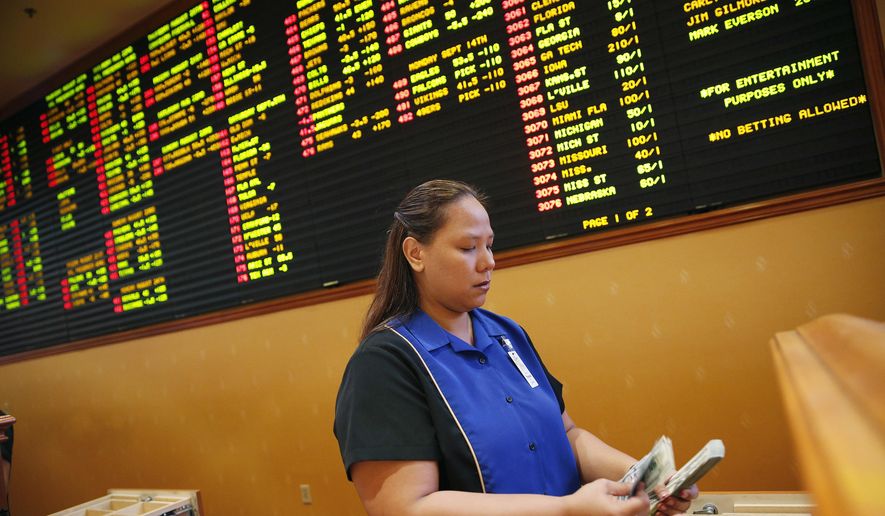Soon, what happens in Vegas may spread to the rest of the United States.
The Supreme Court on Tuesday announced it will hear a case brought by New Jersey to overturn an appeals court ruling that blocks the state from offering betting on sporting events.
Currently, the federal Professional and Amateur Sports Protection Act (PAPSA) of 1992 bans all but four states — Nevada, Delaware, Montana and Oregon — from taking bets from gamblers on baseball, football, basketball and other sporting events.
After a state referendum, New Jersey Gov. in 2014 signed a law to to allow sports betting in the state. New Jersey officials say the federal law blocks them from a $150 billion market that could provide revenue for the state treasury and that the state’s struggling racetracks and casinos would receive a major boost by lifting the ban.
Nevada and the other states were grandfathered in under the immunity clause when PASPA was first passed. Nevada is the only state that can offer betting on individual games.
All four major sports leagues and the NCAA have a long history of opposing the spread of sports gambling, arguing it could affect the integrity of the games. The court decided to accept the state’s appeal even after the Trump administration urged the justices not to get involved.
Arizona, Louisiana, Mississippi, West Virginia and Wisconsin had joined New Jersey’s effort to have the case heard by the Supreme Court.
In 2014, the Supreme Court rejected New Jersey’s earlier challenge to the federal law, the Associated Press reported.
American Gaming Association CEO Geoff Freeman released a statement Tuesday morning praising the high court’s decision to take the case, which will be argued this fall.
“We are pleased the Supreme Court appears to have responded favorably to our arguments as to why they should hear this important case,” Mr. Freeman said. “And we are hopeful their engagement will provide further encouragement for Congress to take the steps necessary to create a regulated sports betting marketplace in the United States.”
The trade group recently announced the creation of a coalition of attorneys general and police, policymakers and others to advocate for the repeal of the ban, claiming a repeal could support more than 150,000 jobs.
— This article was based in part on wire service reports.




Please read our comment policy before commenting.